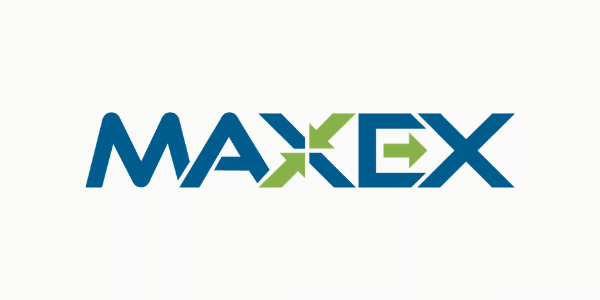Advertisement
FTC/CFPB Consumer Reporting Accuracy Workshop Report
Recently, I was honored to be a participant in the Federal Trade Commission (FTC) and Consumer Financial Protection Bureau (CFPB) co-sponsored Workshop titled “Accuracy in Consumer Reporting.”
 The Workshop featured four panel discussions, all equally balanced between industry representatives and consumer advocates, with additional featured speakers from both the FTC and CFPB. The daylong discussions focused on all aspects of consumer reporting as it pertains to the accuracy of consumer data being reported. From traditional credit transactions, collection accounts, public records of all types (civil judgments, eviction records and criminal histories which are used in resident and employment screening consumer reports) were all addressed in the sessions.
The Workshop featured four panel discussions, all equally balanced between industry representatives and consumer advocates, with additional featured speakers from both the FTC and CFPB. The daylong discussions focused on all aspects of consumer reporting as it pertains to the accuracy of consumer data being reported. From traditional credit transactions, collection accounts, public records of all types (civil judgments, eviction records and criminal histories which are used in resident and employment screening consumer reports) were all addressed in the sessions.Accuracy of the data is an area in which the NCRA has a major interest, and has played a major role in over the years. Way back in 1993, under the National Association of Independent Credit Reporting Agencies (NCRA’s founding name), we studied the accuracy implication of the move from the then required Residential Mortgage Credit Report (RMCR) to the current standard, the automated tri-merge. That study showed that there would be very little new data found by adding the third national credit bureau file, and significantly lost data from eliminating the RMCR requirements in the quest for speed and cheaper reports. Fast-forward nearly 30 years and those findings were upheld.
In 2002, the largest credit reporting accuracy study still ever conducted was performed by NCRA and the Consumer Federation of America, examining more than 1.2 million live tri-merge consumer reports and scores in three various size phases. We saw areas of concern, which Congress acted to address in 2003 with the passing of Fair and Accurate Credit Transactions Act (FACTA). FACTA created the annual credit report Web site that provided consumers a free copy of their credit report for the first time without some type of adverse credit action happening to them, along with many other changes to improve the industry.
Most recently, the sweeping reforms known as the National Consumer Assistance Plan (NCAP) rolled out in 2015 incrementally over a three-year period made further changes that have increased the accuracy of consumer credit reports. NCAP eliminated areas that were problematic, and created new ways to improve other long time challenges. Of the multiple changes NCAP created, one of the most notable was the wholesale elimination of civil judgments from the national credit bureau databases. With the loss of Personal Identifying Information (PII) like Social Security Numbers and date of birth from many of those records, matching them to the proper consumer became inconsistent to a level in which they were removed from the system.
Panel One addressed the credit furnisher practices and compliance with accuracy requirements, featuring Panelists Leslie Bender, chief strategy officer and general counsel with BCA Financial Services; Francis Creighton, president and chief executive officer with the Consumer Data Industry Association; Syed Ejaz, policy analyst with Consumer Reports; Nessa Feddis, senior counsel and vice president with the American Bankers Association (ABA); Elisabeth Johnson-Crawford, chief technical officer with Credit Builders Alliance; and Moderators Susan Stocks, office of enforcement with the CFPB and David Wake of the Office of Supervision Policy with the CFPB.
All of the data in consumer reports start from a source of many types. Traditional creditors, collection agencies, private and government public record sources to name the most common. This group addressed some issues with each that set the foundation for future panels.
The opening of the Workshop was provided by Tiffany George, a senior attorney with the FTC Division of Privacy and Identity Protection, specifically focused on our industry. FTC Commissioner Noah Joshua Phillips and Peggy Twohig, Assistant Director for Supervision Policy for the CFPB both provided remarks with long-time industry regulator Twohig’s address, “Setting the Stage–A Decade of Developments in Consumer Reporting” really hit the mark laying the framework for the sessions to come.
Panel Two addressed the current accuracy topics for traditional credit reporting featuring Panelists Roberto Cera, senior manager of data acquisitions for TransUnion; E. Michelle Drake, shareholder with BergerMontague PC; Troy Kubes, vice president and deputy chief compliance officer with Equifax; Ed Mierzwinski, senior director of federal consumer programs with the U.S. Public Interest Research Group; Donna Smith, chief data officer with consumer information services for Experian North America; Michael A. Turner, president and chief executive officer with the Policy and Economic Research Council; with Moderators Tony Rodriguez and Kiren Gopal from the Office of Supervision Policy of the CFPB.
This panel did a deeper dive into the traditional credit trade lines, the vast majority of most consumer report data that source is the creditors who furnish the information about their consumers to the credit bureaus.
After lunch, Brian Johnson, Deputy Director of the CFPB and Andrew Stivers, Deputy Director of the Bureau of Economics for the FTC, made remarks to recap the morning sessions, set up the day, and underline the importance of this industry to our nation’s economic health. Those remarks led into Panel Three, addressing “Accuracy Considerations for Background Screening.” Those panelists were: Terry Clemans, executive director of the National Consumer Reporting Association (NCRA); Eric Dunn, director of litigation for the National Housing Law Project; Jamie Gullen, supervising attorney with Community Legal Services; Ariel Nelson, staff attorney with the National Consumer Law Center; Melissa L. Sorenson, executive director for the Professional Background Screening Association; Matt Visser; chief executive officer with VICTIG Screening Solutions; along with Moderators Tiffany George and Amanda Koulousias from the Division of Privacy and Identity Protection for the FTC.
Background consumer reports have a major impact on consumer ability to obtain rental housing and employment and is in need of help in the areas of missing and inconsistent data coming from the sources, the various types of municipal, states and private sources who collect, store and provide that information for reporting.
Panel Four addressed “Navigating the Dispute Process,” and featured Panelists LaDonna Bohling, chief compliance officer with Receivable Solutions; Eric J. Ellman, senior vice president of public policy and legal affairs with the Consumer Data Industry Association; Stephanie Froelich, chief executive officer with True Hire; Kristi C. Kelly, and attorney with Kelly & Guzzo; Rebecca Kuehn, a partner with Hudson Cook; Chi Chi Wu, a staff attorney with the National Consumer Law Center; and Moderators Amanda Koulousias of the Division of Privacy and Identity Protection with the FTC and Beth Freeborn of the Bureau of Economics with the FTC. The proper handling of consumer disputes is the battleground of consumer accuracy. Wrong data harms everyone, and unfortunately, there those trying to beat the system via identity theft and other methods that will dispute accurate items as inaccurate. Complicating matters worse is the credit repair firms, most of which use highly questionable and sometimes illegal practices to remove any derogatory items, regardless of legitimacy.
The day’s closing remarks were provided by Maneesha Mithal, Associate Director of the Division of Privacy & Identity Protection with the FTC. Maneesha made several interesting reflections on the day and discussed how this Workshop and the written comments submitted both prior to and through Jan. 30, 2020 will be digested by both agencies and lay the groundwork for future FTC and CFPB actions in the consumer reporting industry over the coming months. The current consumer reporting system is a robust and accurate one, however, there is always room for improvement.
It is very gratifying as a very active, long-time industry participant to see that so much has improved in the quality of consumer reporting over the past 30 years. The level of accuracy and the speed in which a consumer disputes are both processed vastly better today than in the past. All segments of the industry continue to improve the system that is regarded as the best in the world, and a key element of the world’s strongest economy. While the credit reporting system is not perfect, and it never will be, something that Sen. Proxmire realized back in 1970 with the original FCRA—we as an industry should be proud of the changes that we have advanced to benefit all Americans.
Terry W. Clemans is executive director of the National Consumer Reporting Association (NCRA). He may be reached by phone at (630) 539-1525 or e-mail [email protected].
Peggy Twohig, Assistant Director for Supervision Policy for the CFPB, presents “Setting the Stage–A Decade of Developments in Consumer Reporting”
Panel One Moderators Susan Stocks of the CFPB with David Wake of the FTC
Nessa Feddis of the American Bankers Association and Elisabeth Johnson-Crawford from Credit Builders Alliance share their thoughts on compliance
Francis Creighton from the Consumer Data Industry Association and Syed Ejaz from Consumer Reports address attendees during the opening panel discussion
Panel Two Moderators Tony Rodriguez and Kiren Gopal from the Office of Supervision Policy of the CFPB took a closer look at traditional credit trade lines
Troy Kubes of Equifax shares his insight during the second panel discussion
Panelist Roberto Cera of TransUnion discusses traditional credit reporting
Ed Mierzwinski of the US Public Interest Research Group discusses traditional credit reporting during his Panel Two session
Donna Smith of Experian North America shares her thoughts on traditional credit reporting
Brian Johnson, Deputy Director of the CFPB, highlights how the Bureau enforces its mandates
The panelists of Panel Three: Accuracy Considerations for Background Screening
Eric Dunn of the National Housing Law Project explains the role of his firm
Melissa L. Sorenson of the Professional Background Screening Association shares her thoughts during the “Accuracy Considerations for Background Screening” panel
Panel Three’s Matt Visser of VICTIG Screening Solutions explains the screening process
Chi Chi Wu of the National Consumer Law Center takes part in the “Navigating the Dispute Process” discussion
Rebecca Kuehn of the law firm of Hudson Cook details the legalities of the dispute process
Eric J. Ellman of the Consumer Data Industry Association
Panel Four Moderators Amanda Koulousias and Beth Freeborn of the FTC
Tiffany George, Senior Attorney with the FTC delivers her Opening Remarks
About the author



